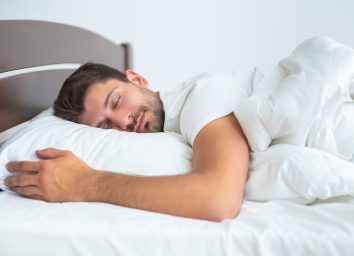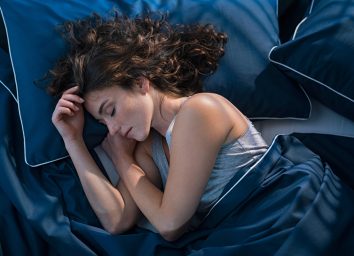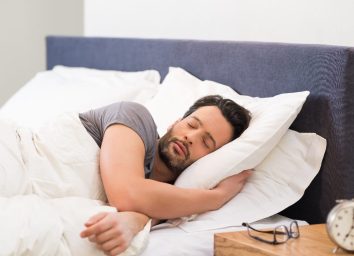The Most Effective Exercises For Sleep Apnea, Expert Says
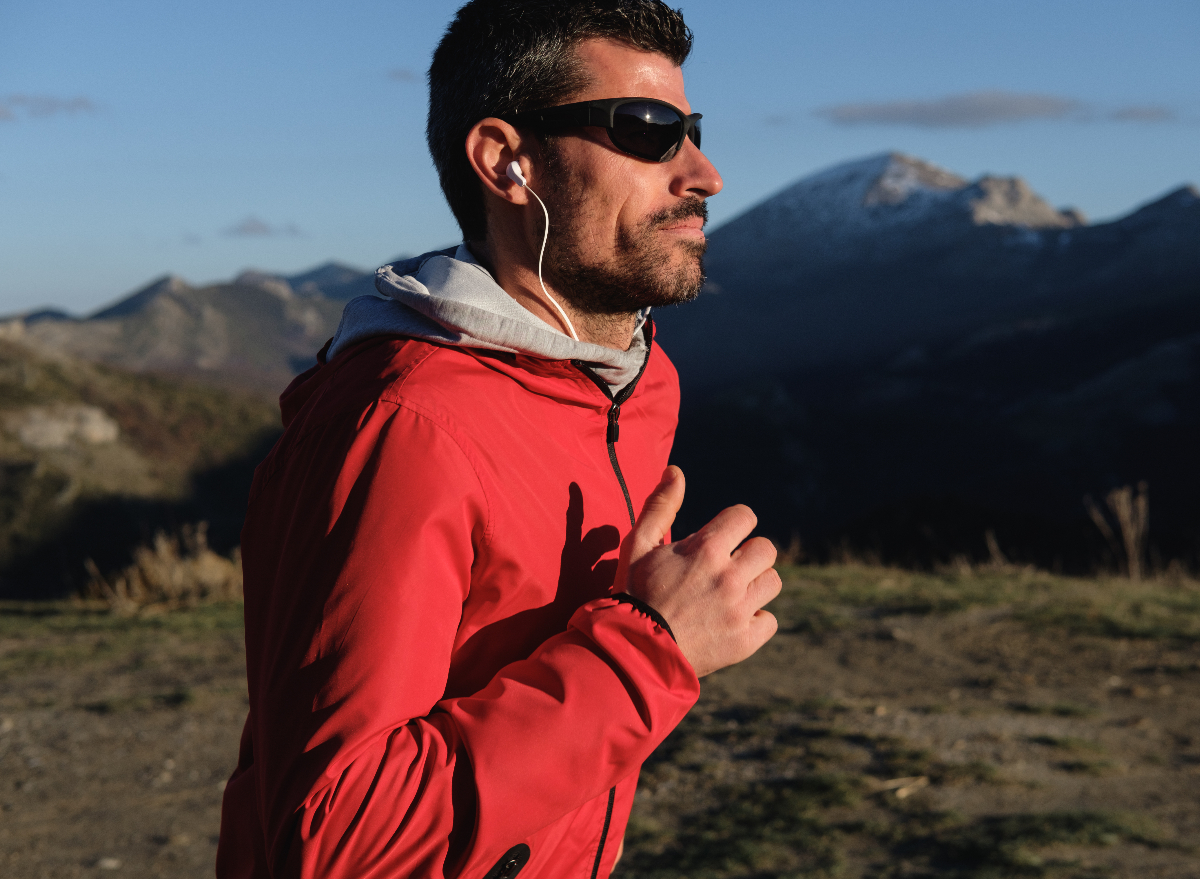
Sleep apnea is more than just inconvenient—it's also a potentially serious health issue that affects more people than you might have realized. Around 10% percent of women deal with sleep apnea, and that number rises to 25% for men, according to Cleveland Clinic. You can develop sleep apnea at any age, although it's most prevalent among individuals who are overweight and individuals above 50. While there are two kinds of sleep apnea—obstructive sleep apnea and central sleep apnea—both involve someone suffering from problematic and disrupted breathing during sleep. Along with affecting a person's performance while awake and, in turn, the quality of their daily life, sleep apnea can also lead to diabetes, stroke, high blood pressure, and heart problems.
Fortunately, there are certain physical activities that you can do that can help, including the following, which Jennifer Scherer, owner and certified fitness trainer of Fredericksburg Fitness Studio tells Eat This, Not That! are the best exercises for sleep apnea. Read on to learn more, and next, check out The 6 Best Exercises for Strong and Toned Arms in 2022, Trainer Says.
Any Cardiovascular Exercise
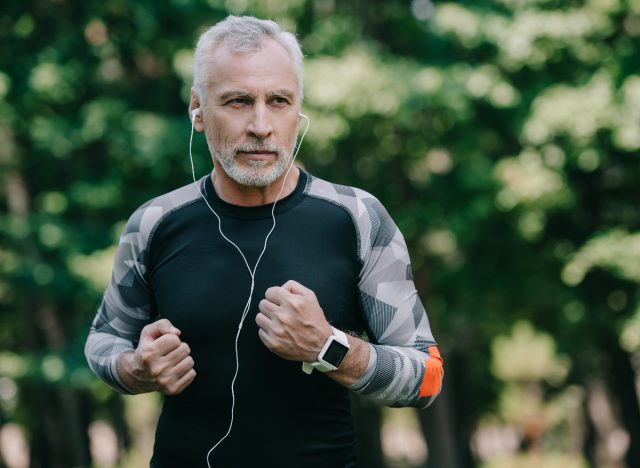
While mentioning walking, cycling, and other cardiovascular exercises, Scherer explains that during these activities, "the respiratory muscles, particularly the diaphragm, work at an increased rate, [which] leads to improved fatigue resistance." Beyond that, regular cardiovascular endurance could enhance the activation of upper airway muscles to lessen airway resistance and enlarge the upper airway diameter.
Scherer adds that you should aim for at least 60 minutes of cardiovascular exercise three days per week.
Related: Drink This Much Water Each Day To Prevent Heart Failure, New Study Says
Relaxing Yoga Poses
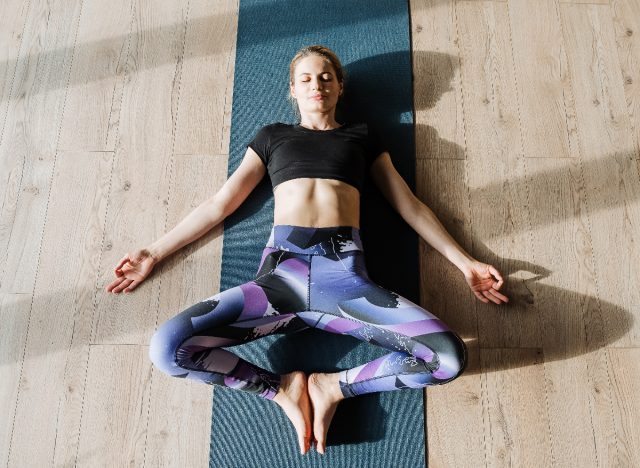
Yoga can benefit your body in many ways, including helping you sleep better, according to Scherer, who explains, "Yoga helps alleviate stress so you can sleep more peacefully."
"My recommendation to emphasize complete relaxation is to try the lying butterfly pose from the comfort of your bed," Scherer says. "Lying on your back, press the bottoms of your feet together, and let your knees fall gently out to the side. Allow the weight of your knees to slowly get closer to the bed to completely 'let go' and surrender to the pose. You can put a pillow under your knees if this feels too strenuous. Close your eyes and focus on slow, mindful and steady breathing: counting in for five seconds, and exhaling out for eight seconds."
Scherer adds, "This technique calms the mind and body and prepares you for a restful night's sleep."
Related: Hate "Exercising?" Do These 5 Things Each Day To Burn Fat, Trainer Says
Deep Breathing Exercises
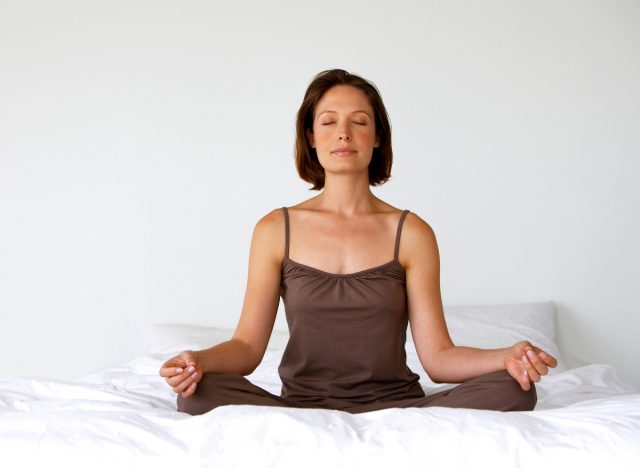
Scherer also says that deep breathing exercises can "help strengthen, tone, and open the upper airway muscles which can reduce the symptoms of sleep apnea," which is why she suggests trying a guided meditation app.
Sherer offers some tips on how to perform the breathing exercises correctly and effectively, saying, "Aim to breathe in through your nose completely, hold the breath at the end of the inhale for a couple of seconds, then exhale completely through your mouth until every bit of air has been expelled from your lungs."
For more…
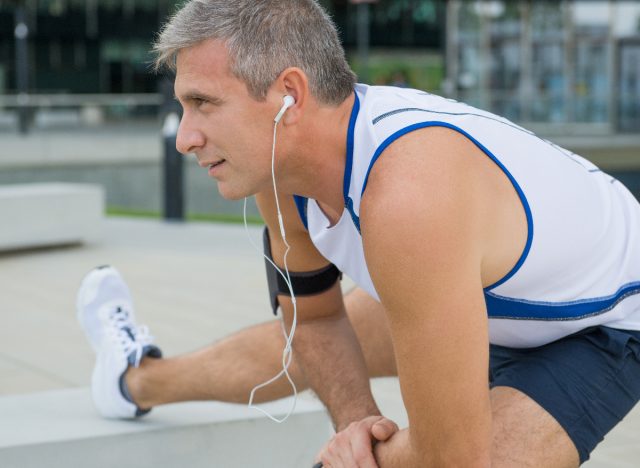
To find out more about how working out can affect the quality of your rest, be sure to read The #1 Worst Time to Exercise If You Love to Sleep, New Study Says. Then, don't forget to sign up for our newsletter for more of the latest mind and body news!

